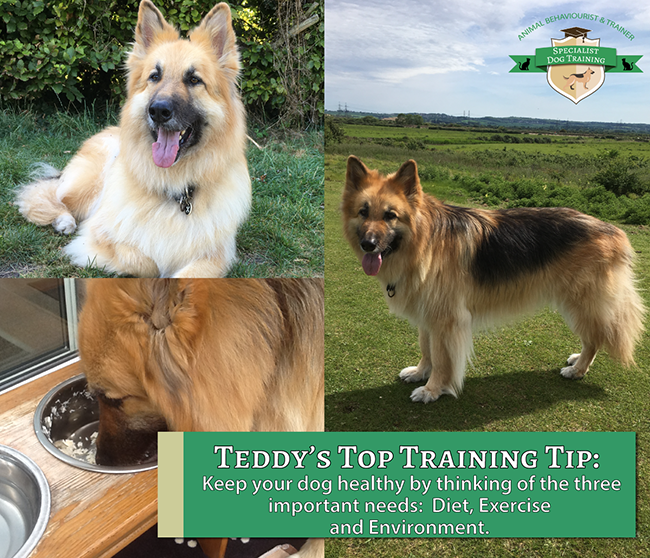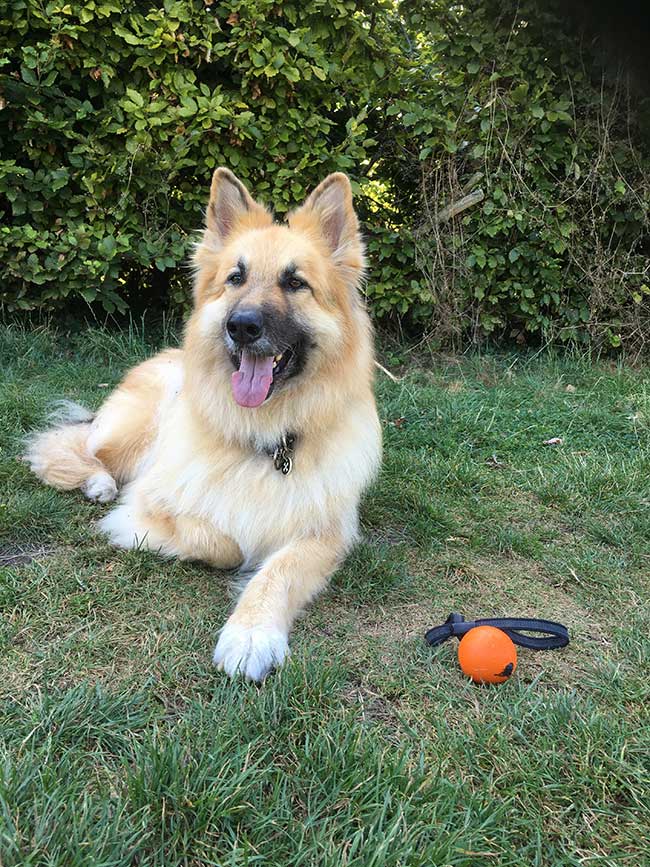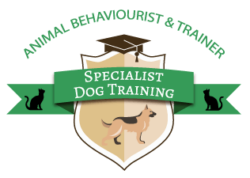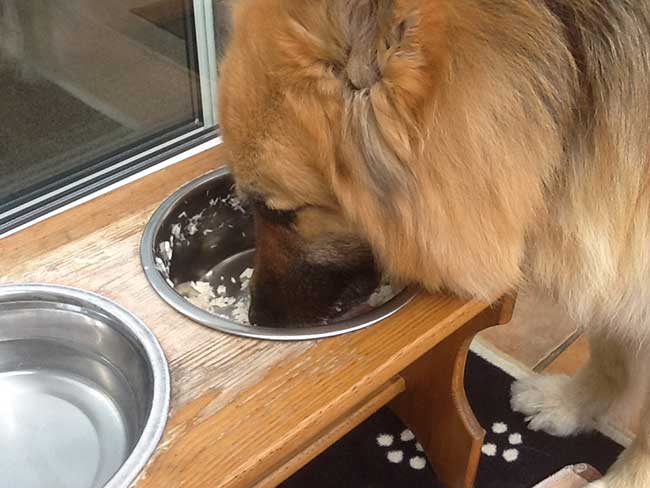
Teddy’s Top Training Tip : Keep your dog healthy by thinking of the three important needs: Diet, Exercise and Environment.
After my dog Teddy received his recent health check, it got me thinking when I always get told isn’t he looking fabulous and how old did you say he was. I feel very blessed to have such a lovely companion such as my Teddy live with me. However, it got me thinking on what I consider as his three important needs and why at the age of 11 years he looks so fabulous, so I thought that I would share three of Teddy’s secretes to healthy living with your dog.
The three important needs that come to mind:
 Diet:
Diet:
More recently this has been one of great debate and choice now on how and what you feed your dog is increasing. One key point I took on board is deciding what I fed my dog was not a rush decision and I researched and looked at many different options. I have also adapted his diet through the years, from his young puppyhood through to adolescence onto adulthood and now changing it slightly at the age he is now. Remember the eating habits we start with our dogs has an impact on their health. Remember the saying “you are what you eat” it goes for our dogs too!
Clean drinking water is another aspect of diet and should be available throughout the day for your dog. Again, it contributes with your dog’s wellbeing.
Exercise:
 Walking your dog can be a good form of exercise for both you and your dog. Adapting the exercise according the dog’s age, health and breed is also another consideration before you embark on any exercise programme. Physical exercise also helps with behaviour and the dog’s mental wellbeing. Studies have shown that daily physical exercise increases the feel-good factor (serotonin) which in turn have benefits over the dog’s general mood, reduces stress levels, raises the dog’s tolerance levels and helps to control impulsive behaviour.
Walking your dog can be a good form of exercise for both you and your dog. Adapting the exercise according the dog’s age, health and breed is also another consideration before you embark on any exercise programme. Physical exercise also helps with behaviour and the dog’s mental wellbeing. Studies have shown that daily physical exercise increases the feel-good factor (serotonin) which in turn have benefits over the dog’s general mood, reduces stress levels, raises the dog’s tolerance levels and helps to control impulsive behaviour.
Exercise from a brisk walk so that the dog must trot helps to increase the feel-good factor and having a brisk walk with your dog helps the human and canine bond. A brisk walk so that the dog trots does not mean a jog – you should never jog with your dog. Brisk walking to include exploring through sniffing gives your dog some natural instinctive behaviours.
Running and chasing can include some fetching and retrieving or hide and seek can all help give a varied form of exercise and interaction your dog, which all use the dog’s senses. Agility and other canine sports can help with mental stimulation.
Psychological exercise helps your dog strengthen his neural pathways and connections in his brain. Psychological exercise is very important as it is very much controlled exercises such as obedience training, so it teaches your dog self-control, helps with problem solving and above all it teaches the dog to think.
Environment:
 Where and how your dog lives is important as it balances their biological and emotional stress. Rest and relaxation is not only important for us, but also for our dogs. Rest helps the body to recover from stress and illness. Stress can impact on the dog’s body and the dog’s behaviour which can be displayed as problems with behaviour, a dog will also be more likely to react to situations or events. To help with your dog’s psychological and physiological well-being look at the environment your dog lives in. A dog needs to rest in a quiet and undisturbed area. The area needs to be comfortable and the dog should know that when they go to that place they will not be disturbed (day or night). Daily rest includes lying down and relaxing on their bed, napping and sleeping. So, if they are resting, napping or sleeping above all let sleeping lie.
Where and how your dog lives is important as it balances their biological and emotional stress. Rest and relaxation is not only important for us, but also for our dogs. Rest helps the body to recover from stress and illness. Stress can impact on the dog’s body and the dog’s behaviour which can be displayed as problems with behaviour, a dog will also be more likely to react to situations or events. To help with your dog’s psychological and physiological well-being look at the environment your dog lives in. A dog needs to rest in a quiet and undisturbed area. The area needs to be comfortable and the dog should know that when they go to that place they will not be disturbed (day or night). Daily rest includes lying down and relaxing on their bed, napping and sleeping. So, if they are resting, napping or sleeping above all let sleeping lie.

 Diet:
Diet: